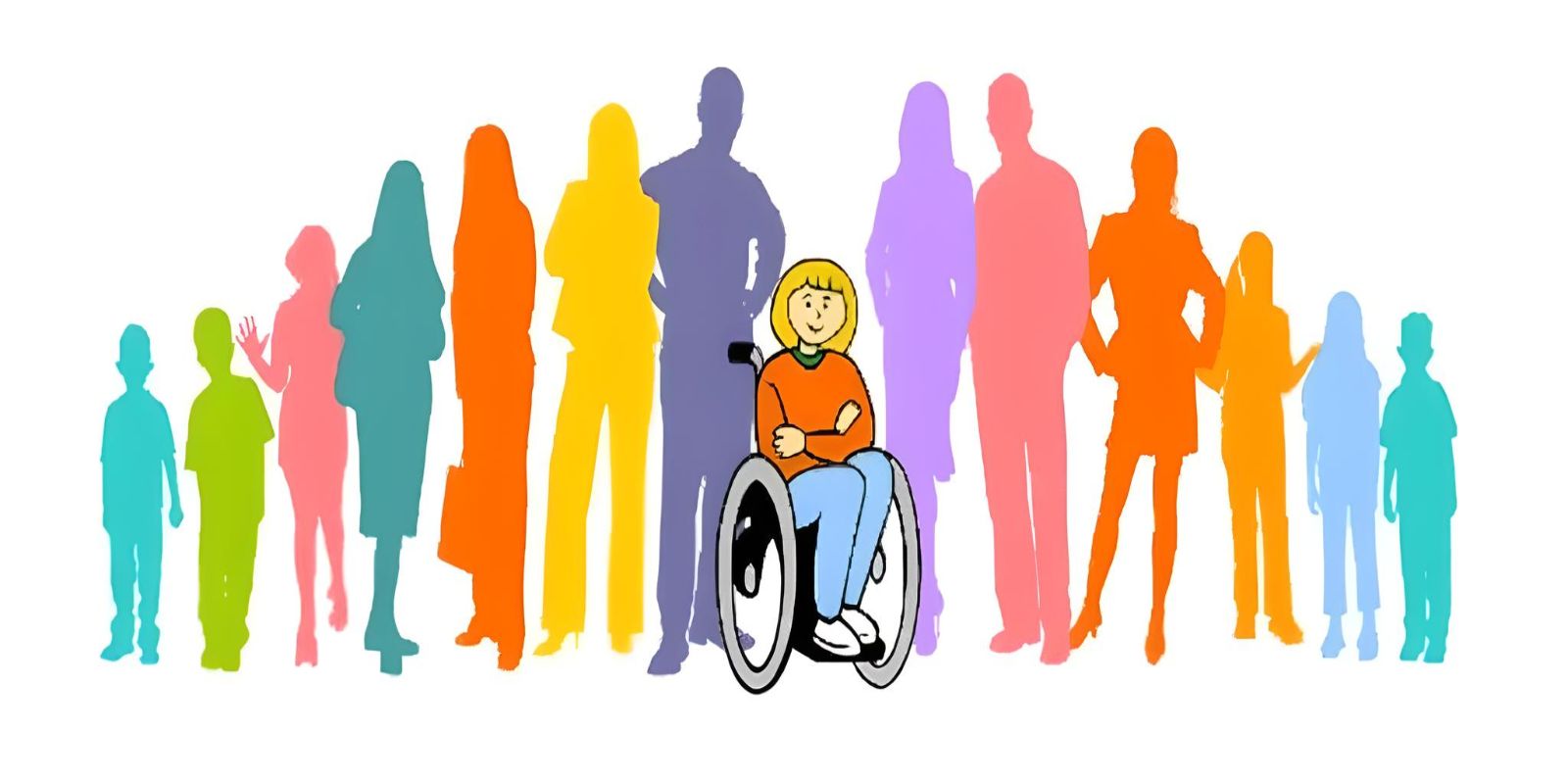Intimate Lives Beyond Barriers: Sex and Disabilities
Sexual desire exists as a fundamental part of human experience across all bodies and minds. Every person harbors fantasies, yearnings, and intimate thoughts that form our core identity. The complex relationship between sex and disabilities remains largely unaddressed in mainstream conversations, despite affecting millions worldwide. This universal aspect of humanity connects us all through our shared emotional needs for connection and pleasure.
Disabilities can present unique challenges to sexual expression and fulfillment. These barriers often arise not from the conditions themselves but from societal misconceptions and lack of accessible information. Many people wrongly assume those with disabilities lack sexual desires or cannot participate in intimate relationships.
Individuals living with disabilities may encounter physical limitations affecting positions or sensations. They might face communication hurdles when expressing needs to partners. Social stigma can damage self-image and confidence in romantic settings. Healthcare providers sometimes overlook sexual health during treatment discussions. Finding partners who understand unique needs requires additional vulnerability and education.
Yet these challenges never diminish the right to sexual expression. With creativity, communication, and appropriate accommodations, people with disabilities can develop rich, satisfying intimate lives that honor their complete humanity and desires.
Inability to engage in regular sex life – Sex and Disabilities
Disabilities can significantly impact the frequency and spontaneity of sexual encounters. Physical and sensory conditions often require thoughtful planning rather than spontaneous intimacy. Many people without disabilities engage in sex regularly without much preparation. This natural rhythm becomes more complex for those with mobility, sensory, or cognitive differences.
Individuals with disabilities frequently need additional coordination and support to have sex comfortably and safely. This might involve scheduling assistance from caregivers before intimate time, arranging accessible spaces, or preparing adaptive equipment. Such preparations make spontaneous sexual encounters challenging or impossible.
Long-distance relationships sometimes offer unexpected advantages. The scheduled nature of visits aligns well with the planning many disabled individuals already incorporate into daily life. Partners can prepare thoroughly for meaningful intimate connections during these planned meetings.
The altered frequency of sexual activity stems from practical considerations, not lack of desire. Energy management becomes crucial as many conditions involve fatigue or pain fluctuations. Communication about timing needs to account for medication schedules, symptom flares, and accessibility requirements.
Despite these challenges, sex and disabilities can be worked on to make relationships remain entirely possible. Creative scheduling, open communication with partners, and adaptive approaches can lead to fulfilling intimate lives that honor both desire and physical realities.
Anxiety Can Impact A Lot – Sex and Disabilities
Anxiety casts a significant shadow over sexual experiences for many people with disabilities. This emotional barrier often surpasses physical limitations in its impact on intimate relationships. The complex relationship between sex and disabilities creates unique challenges that manifest strongly in the realm of anxiety. Individuals frequently worry about how partners perceive their bodies or accommodations needed during sex.
The fear of judgment creates hesitation when initiating intimacy. Many disabled people struggle to express sexual desires, trapped in uncertainty about their partner’s true feelings. They question if partners feel obligated rather than genuinely attracted. This silent doubt erodes confidence and creates distance precisely when connection matters most.
Self-consciousness about physical appearance or performance capabilities builds additional pressure. The internal dialogue becomes overwhelming: “Will they find my body attractive?” “Can I satisfy them sexually?” “What if my disability interrupts our moment?” These thoughts flood the mind during moments meant for pleasure and connection.
The resulting performance anxiety creates a self-fulfilling cycle. Worry about sexual inadequacy often leads to exactly what they fear, difficulty with arousal, maintaining focus, or experiencing pleasure. This reinforces negative beliefs about sexual capacity.
Partners sometimes misinterpret this hesitation as lack of interest rather than fear. This misunderstanding can trigger rejection, confirming the original anxiety and deepening relationship challenges. Breaking this cycle requires exceptional communication, patience, and mutual vulnerability from both partners.
Managing Sexual Energy with Physical Limitations
Physical disabilities often create complex energy management issues that affect sexual desire. Many people with disabilities allocate significant energy toward basic mobility, pain management, or adapting to environments not designed for their bodies. This necessary energy conservation leaves fewer resources for sexual activity.
Hormonal changes can accompany certain conditions, directly impacting libido. Spinal cord injuries may affect genital sensation and arousal pathways. Multiple sclerosis can cause fluctuating energy levels that make planning intimate moments challenging. Chronic pain conditions demand constant physical and emotional resources that might otherwise fuel sexual desire.
The persistent fatigue many experience stems from the extra effort required for daily tasks. By evening, when couples typically connect intimately, many disabled individuals face profound exhaustion. This creates a mismatch in energy levels between partners that requires understanding and flexibility. Medication side effects frequently compound these challenges. Many common prescriptions for pain, spasticity, depression, or seizures list reduced libido as a side effect. These medications, while necessary for health, can suppress natural arousal responses and sexual interest.
Mental health factors also influence desire. Living with social stigma and accessibility barriers takes an emotional toll. Depression and anxiety occur at higher rates among people with disabilities, both conditions known to diminish sexual interest. The complex relationship between sex and disabilities becomes particularly evident when considering energy limitations. The psychological impact of constantly navigating a world not designed for disabled bodies creates stress that directly counteracts sexual desire.
Despite these challenges, sexual expression remains important. Adapting expectations about timing, duration, and types of sexual activity can help accommodate energy limitations without sacrificing intimacy.
Expanding Sexual Possibilities Beyond Physical Limitations
Physical disabilities often restrict movement, limiting conventional sexual positions. This challenge invites creativity rather than resignation. Many couples discover that adaptive approaches lead to deeper intimacy and unexpected pleasures beyond traditional methods.
Use of sex toys opens new pathways to pleasure that bypass physical limitations. These aids allow stimulation of erogenous zones without requiring difficult positioning or sustained movement. Specially designed adaptive equipment makes previously inaccessible sensations possible. Partners can explore vibrators with extended handles, position aids, or hands-free options that accommodate limited mobility.
Learning about these tools requires commitment but yields significant rewards. Resources specifically addressing sex tricks for the disabled help couples discover positions that work with rather than against physical realities. Modified positions like side-lying, seated encounters, or using furniture for support can provide stability while maintaining closeness.
Experimentation becomes crucial for sexual fulfillment. What works for one body may not work for another. Couples who communicate openly about comfort, sensation, and pleasure typically discover their unique intimate language. This personalized approach often leads to more satisfying experiences than following conventional sexual scripts.
Some people initially hesitate to modify their approach to sex, fearing it makes them inadequate. This misconception limits potential pleasure. Embracing adaptive techniques actually expands sexual possibilities rather than diminishing them.

Pain During Sex
People have different disabilities. Some were born disabled while others became disabled through accidents and other factors. Therefore, disability limits some sex moves and that is why you find most disabled people using wheelchairs to support themselves. This could possibly mean any movement which is contrary to their bodies can inflict some pain.
Most psychologists have reported that most disabled people have reported pain as part of their physical challenges when having sex. This could be possibly true because sex is an aggressive activity that engages almost every muscle. Therefore, it might inflict pain. The complex relationship between sex and disabilities often includes navigating physical discomfort during intimate moments. This makes it hard for the disabled to enjoy sex just like the other people.
Pain management strategies become essential for many individuals with physical limitations. Understanding how specific conditions affect sensation helps partners adapt their approach. Preparation often makes a significant difference in comfort levels. Proper positioning, supportive pillows, and timing intimate moments when pain levels are lower can transform the experience.
Open communication about pain helps partners respond appropriately without anxiety. Many couples develop subtle signals to indicate when adjustments are needed. This honest approach builds trust and allows both partners to remain present during intimate moments rather than worrying about causing discomfort.
Breaking Barriers: Support and Communication
Ideally, the contemporary society tends to discriminate disabled people over their sex life. Others take advantage of their disability and they fear to lose their spouses. However, it is important for people with a disability that there is always help. Sex is all about having good communication. Talk about your feats and your concerns so that you might receive some help. It is also important to stay socially active so that you can receive support from your friends and new ideas to spice up your sex life.
The relationship between sex and disabilities remains largely misunderstood in mainstream culture. Many people wrongly assume those with disabilities lack sexual desires or capabilities. This misconception creates isolation and prevents many from seeking information or support about intimate matters.
Open dialogue with healthcare providers can reveal solutions for specific challenges. Physical therapists often suggest positions that accommodate mobility limitations. Occupational therapists can recommend adaptive equipment. Sex therapists specializing in disability issues offer strategies tailored to unique needs.
Community connection provides both emotional support and practical knowledge. Disability-focused forums and support groups create safe spaces to discuss intimate concerns. These communities share valuable resources that mainstream sexual education typically overlooks.
Partners who communicate honestly about needs and limitations typically develop deeper intimacy. This vulnerability allows couples to explore creative approaches to pleasure that work for their specific circumstances. Small adjustments in timing, positioning, or technique often make significant differences in comfort and satisfaction.

Embracing Your Sexual Identity Beyond Limitations
Well, you need to remember that disability doesn’t change your sexuality or how you express it. It might affect how you have sex but you need to approach it with a different perception. You also have a right to make your decisions because there are different ways you can enjoy sex with your partner. You might consider available options and capitalize on what makes you comfortable. Talk to your doctor about the concern about disability and sexuality and you will receive help.
The journey of sex and disabilities involves reclaiming your identity as a sexual being deserving of pleasure. Many resources exist specifically to support this important aspect of human experience. Healthcare providers trained in sexual health can offer personalized guidance for your specific situation.
Specialized retailers like Adult Lifestyle Centres Kogarah provide mobility-friendly environments and products designed for diverse bodies and needs. These spaces offer both practical solutions and the affirmation that your desires matter.
Remember that adaptation doesn’t mean limitation. Many people discover that working with their bodies rather than against them opens unexpected pathways to pleasure. Your sexuality remains uniquely yours to explore and express in ways that bring fulfillment and joy.



